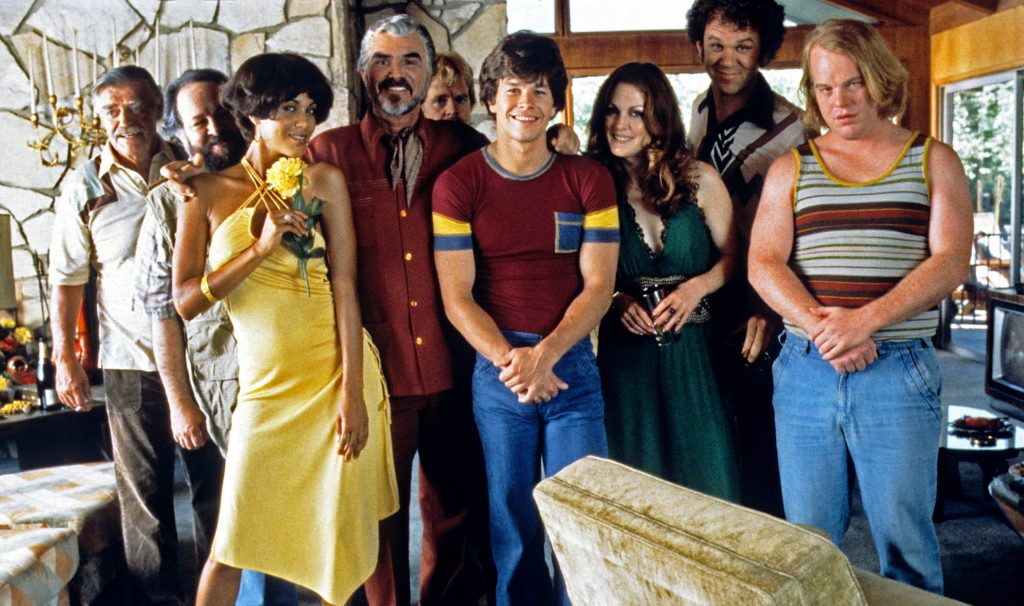
One of the films I instantly gravitated towards when I first got into film, probably around 15 or 16, which is maybe too young to fully appreciate some of the themes (though Paul Thomas Anderson was younger than I am now when he made it). I can see why I was so charmed by it then: its nonstop pacing and flashy filmmaking techniques probably scratched the same itch as other early favourites like Goodfellas and Pulp Fiction.
It’s been more than a decade since I’ve seen it, and I’m surprised by how much I remembered — so many scenes stood out and instantly came back to me. Boogie Nights has a lot of great setpieces and it was a joy to revisit scenes that were so vital to me when I was still in high school and learning what film was all about.
Having seen many more movies since then, including more that Anderson has made, I took more notice of how much attention is paid to the characters, of which there are many. This movie really has an all-time cast and even relatively minor roles are significantly boosted by powerful talents like Philip Seymour Hoffman and William H. Macy. Each character is given a distinct voice and personality, all of which makes the story that much more engaging and vital, especially when things start to go south.
The formula is pretty classic — the rising star who falls from grace before a big comeback — but at no point does anything feel exploitative, which is saying something considering this is a movie about the porn industry. What I appreciate about Anderson is that he never goes for shock value. Boogie Nights is more violent than I remember, to often hilarious and weird ends, but each instance is purposeful and builds on the already well-defined characters.
To that end, the sex is also played very matter-of-factly, more a matter of plot and character than excitement for the viewer. For the most part, the characters in Boogie Nights enjoy what they do, but it is still work, and sex takes a different role in their lives than in most people’s, to the point where the surrogate mother-son relationship between Dirk and Amber is solidified during their first sex scene. It demystifies it and brings it down to earth, leaving room for us to focus on the characters and their relationships with each other.
I just fell in love with this movie all over again from the first scene on. The soundtrack is excellent; the highs are infectious and the lows make it hard to look away; it’s very funny without losing its pervading sense of sadness, though there’s never the sense that the work the characters do is pitiful or distasteful — just that, like any dream one chases, they’ll never find total fulfillment in it. Burt Reynolds is completely in control from beginning to end, but Julianne Moore’s performance is the one that stands out to me, someone so of this world and tied up in its relationships but also yearning for a different life that her current one makes impossible.
More than one of Anderson’s movies already rank among my all-time favourites, and I might have to add this one into the mix. He’s grown in many ways as a filmmaker and storyteller, but Boogie Nights is so charming and fully realized that it’s easy to mistake for the work of someone twice his age.
This review was originally written for Letterboxd.